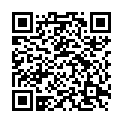|
|
|
| Module code: MAM.2.1.1.19 |
|
|
1V+1U (2 hours per week) |
|
2 |
| Semester: according to optional course list |
| Mandatory course: no |
Language of instruction:
German |
Assessment:
Seminar presentation
[updated 08.01.2020]
|
E2581 (P200-0019) Electrical Engineering and Information Technology, Bachelor, ASPO 01.10.2018
, semester 5, optional course, non-technical
MAB.4.2.1.31 Mechanical and Process Engineering, Bachelor, ASPO 01.10.2013
, optional course, general subject
MAB_19_4.2.1.41 Mechanical and Process Engineering, Bachelor, ASPO 01.10.2019
, optional course, general subject
MAM.2.1.1.19 (P241-0193, P610-0560) Engineering and Management, Master, ASPO 01.10.2013
, optional course, general subject
|
30 class hours (= 22.5 clock hours) over a 15-week period.
The total student study time is 60 hours (equivalent to 2 ECTS credits).
There are therefore 37.5 hours available for class preparation and follow-up work and exam preparation.
|
Recommended prerequisites (modules):
None.
|
Recommended as prerequisite for:
|
Module coordinator:
Studienleitung |
Lecturer: Studienleitung
[updated 15.02.2019]
|
Learning outcomes:
In this course, students will be introduced to the basics of rhetoric and presentation for technical professions and will be individually coached with regard to their verbal and non-verbal communication.
The course is very practice and training-oriented. It offers a mixture of lectures, individual and team work and targeted individual training.
After successfully completing this course, students will have deepened, consolidated and expanded the following skills:
- Finding/strengthening their own style of communication
- Structuring and coordinating information
- Developing/strengthening their own rhetorical skills
- Assessing communication partners and situations
- Giving and receiving feedback
- Using presentation techniques effectively
[updated 05.10.2020]
|
Module content:
1. Principles of rhetoric and presentation
2. Planning a presentation (organization/check list)
3. Content concept (order/structuring information)
4. Rhetorical practice (stylistic devices/argumentation strategies)
5. Visualization concept (working with media, designing slides)
6. Procedure (structure, phase structure)
7. Individual training (promotion of verbal and non-verbal communication)
8. Dealing with disruptions (dealing with disruptions and conflicts)
[updated 05.10.2020]
|
Teaching methods/Media:
Blackboard, overhead projector, projector, exercises and training units (with video recording)
[updated 05.10.2020]
|
Recommended or required reading:
Fey, Heinrich: Sicher und überzeugend präsentieren, Walhalla, 1996
Lackner T.: Die Schule des Sprechens. Rhetorik und Kommunikationstraining. Öbv & Hpt, 2000.
Schulz von Thun F., Ruppel J., Stratmann R.: Miteinander reden. Kommunikationspsychologie für Führungskräfte. Rowohlt 2003.
[updated 05.10.2020]
|


